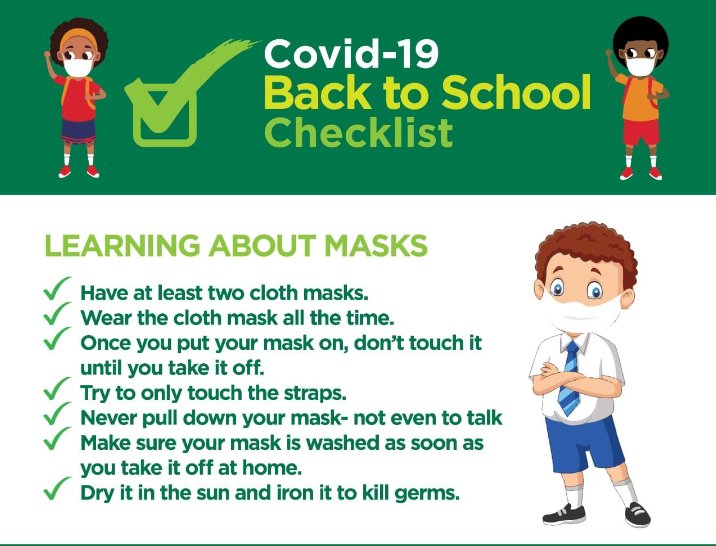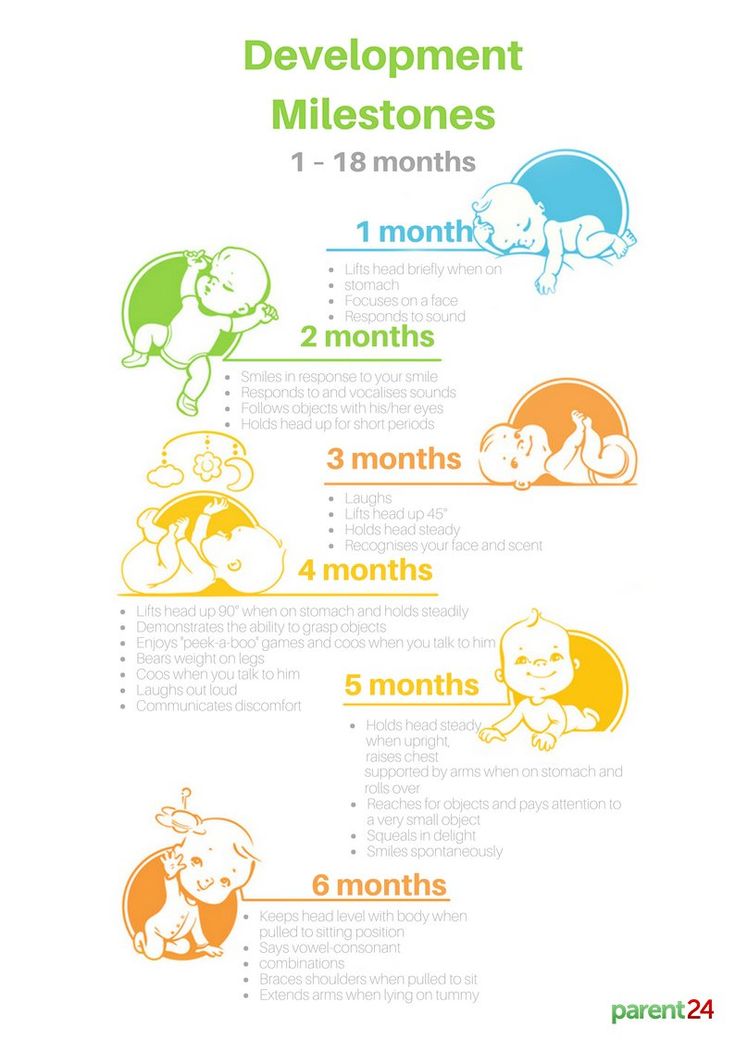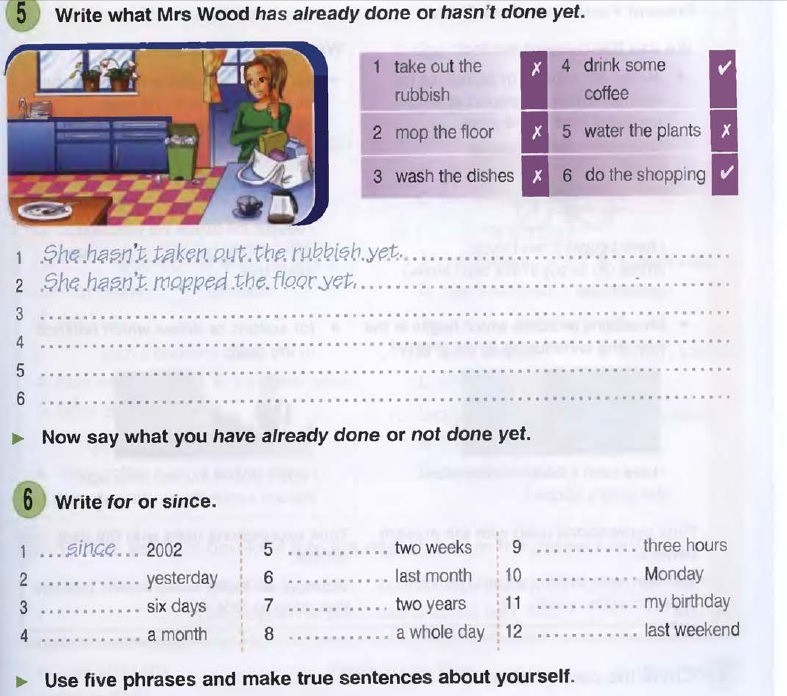How to teach your child the ten commandments
Teaching the 10 Commandments of God in Your Children's Ministry
Teaching the Ten Commandments to youth always starts with Moses. After climbing Mount Sinai to talk to God, 80-year-old Moses received the 10 Commandments, engraved on two stone tablets. This part is easy to understand, but teaching your young learners the importance of each Commandment might take more work.
If you are not sure how to teach your kids the Ten Commandments, keep reading for a child-friendly summary of each one.
1. Thou shalt not have strange Gods before me.
God is the only “real” God and should be the most important thing in a believer’s life. That is exactly what this Commandment addresses, that Christians should be loyal to God and trust in Him above all. Faith is more important than anything else, especially wealth or material possessions.
2. Thou shalt not make unto thee any graven image.
If too many representations of God are made, people will fall into the trap of worshiping these, not God Himself. Carvings and paintings of God are called idols, and they stop people from worshiping God in the proper way. To be genuine with your faith, you must honor the real Him.
3. Thou shall not take the name of the Lord thy God in vain.
Misusing the name of God, either as an insult, or a swear word, is a terrible thing called blasphemy. When people do this, they show that they don’t have proper faith in God, as they resort to insulting Him by dropping His name into a conversation where it doesn’t belong or misusing it with disrespect.
4. Remember to keep the Lord’s Day holy.
Ask your students if they have ever considered why we choose Sunday to go to church. It is due to this Commandment, as it instructs people to take the Sabbath day as a day of rest like God did in the story of creation. So, we dedicate our Sundays to spending time with God, depending on our faith while resting, both physically and mentally.
5. Honor thy father and thy mother.
We must show respect to our elders, especially our mothers and fathers. While the term “honor” might seem a bit old-school, teach your kids that this means we should be polite. We should be respectful to our parents or guardians, and adults in general. Refer back to Mother’s Day or Father’s Day to highlight that this is the rule that led to days like these.
While the term “honor” might seem a bit old-school, teach your kids that this means we should be polite. We should be respectful to our parents or guardians, and adults in general. Refer back to Mother’s Day or Father’s Day to highlight that this is the rule that led to days like these.
6. Thou shalt not kill.
This is probably the most self-explanatory of the Commandments, but maybe the least relatable. When teaching the Ten Commandments for kids, it is important to put them into terms they can understand. Talk about managing emotions and how violence and hurting people is never the answer.
7. Thou shalt not commit adultery.
Just like the previous, this one will have to be adapted to be relatable to kids. When teaching number seven of the Ten Commandments for children, relate it to being faithful. First, ask them if it's important to stick to the things you promise and to be true to your friends. Then, bring it back to their parents and the importance of marriage as a holy union.
8. Thou shalt not steal.
Explain to your young students that it is never acceptable to steal, whether from a shop, schoolmates, or siblings. This Commandment tells us that we must respect other people’s possessions by not stealing from them. Ask if anyone has ever had something stolen from them and how it made them feel.
9. Thou shalt not bear false witness against thy neighbor.
Literally, this Commandment demands that we don’t lie about our neighbors. As words to live by, it means that we must be honest at all times and live a life of truthfulness. Even if telling a small lie would benefit us, we cannot know what that small lie will lead to. Lying causes terrible situations and often leads to more lies, creating a web you can’t escape from.
10. Thou shalt not covet thy neighbor’s goods.
The final Commandment teaches us that we should be happy with what we have. If we always look at others' situations and feel as though the grass is greener, we will suffer from jealousy, a terrible emotion that can lead to sins like stealing. When we are grateful for what we have already, we are thankful for God and what He has given us.
When we are grateful for what we have already, we are thankful for God and what He has given us.
When teaching the 10 Commandments for kids, highlight that there is an overlap between the law and the Ten Commandments. This means that Christian values are generally the same as secular values too! Explain to the kids – the 10 Commandments for children can simply be seen as a way to help people understand right and wrong.
We must live by these rules as Christians but also as members of society. Children’s Ten Commandments highlight the values we should live by to lead a Godly life and be good people. How to teach the Ten Commandments depends on the age of your kids and the size of your group. But, try some of these worksheets to help the message sink in deeply. Mixing them into a trivia game is a great way to help kids commit the Ten Commandments to memory.
We also found this great 10 Commandments memorization video using just your fingers:
How to Teach the Ten Commandments to Children
PEGGY WEBER
When people think of the Ten Commandments, the words “covet” and “neighbor’s wife” comes to mind—or the image of Charlton Heston holding two tablets. Your students may think of the Ten Commandments as a list of “do nots”, a checklist for confession, or just another list to memorize. Yet there is a way to present the Ten Commandments in a positive way that will make a lasting impression on your students.
Just as a soccer or baseball game has rules—Thou shall swing at strikes; Thou shall stay on sides when playing forward in soccer—so too, does a faith-filled life. Let’s take a look at the roadmap God gave us through Moses.
ACTIVITY
Read each commandment in its traditional form. Tradition is good, and students should hear these words from Scripture. However, they also need to know what these words mean, especially when many people get tripped up by terms like “strange gods”.
1. I am the Lord your God; you shall not have strange gods before me.
Ask students to make a list of what special things they have in their rooms that show who they are. Do you have a sports poster? A picture of a family member? A statue of a dancer? Where is God? Suggest they find a spot for God in their room and observe the First Commandment by honoring the creator who gave us life and this wonderful world.
2. You shall not take the name of the Lord your God in vain.
Explain that we should not use God’s name in a disrespectful manner. How would you feel if someone said bad things and said swears around your mom or your dad? How do you think God feels when he hears those kinds of words coming from your mouth? Do you swear to fit in with your friends? How can you remember to think before you speak?
3. Remember to keep holy the Lord’s Day.
How many hours do you spend in school? How much time do you watch television or play video games? What makes a day special? Why is Sunday special?
4.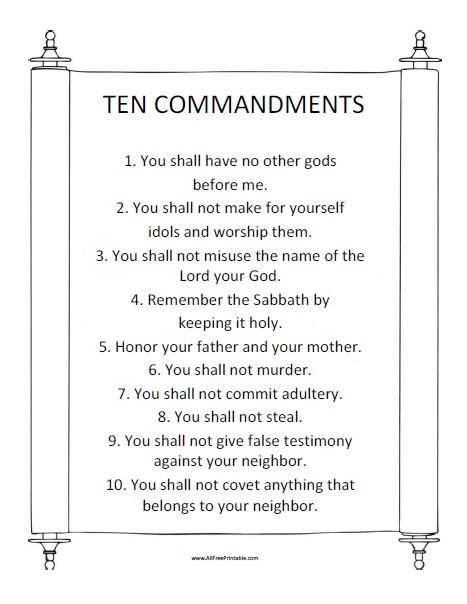 Honor thy father and mother.
Honor thy father and mother.
Name some important honors: the academy awards, MVP for a sport, or even best speller at school. Explain that this use of the word honor means recognizing the importance of parents as people who are guiding us and helping us grow. Encourage your students to honor their parents each day with a kind word or deed-and watch love flourish.
5. Thou shalt not kill.
This commandment is not just about murder. Have we “killed” someone’s soul with unkind words or actions? How have we wasted our time or life? What have we done that is destructive to life-abused our bodies, etc.?
6. You shall not commit adultery.
Discuss the sacrament of marriage and the importance of being faithful. Depending on the age of your students, you can also talk about modesty, chastity, and respecting our bodies.
7. You shall not steal.
Forget a discussion of shoplifting for now.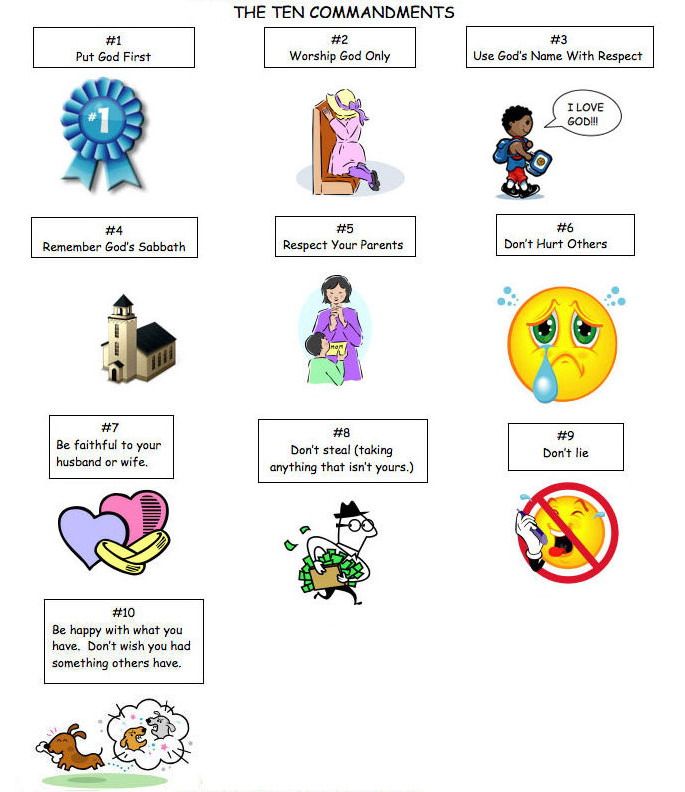 Instead, focus on questions like What do you give in life? How do you help others? How do you use your time for good? Read the parable of the talents (see Matthew 25: 14-30). Do you bury them, share them, or grow them? Ask your students what they would do with one dollar. Can you help the world with it? Buy a lottery ticket? Donate it to a worthy cause?
Instead, focus on questions like What do you give in life? How do you help others? How do you use your time for good? Read the parable of the talents (see Matthew 25: 14-30). Do you bury them, share them, or grow them? Ask your students what they would do with one dollar. Can you help the world with it? Buy a lottery ticket? Donate it to a worthy cause?
8. You shall not bear false witness against your neighbor.
Talk about the hurtful nature of gossip and bullying, and how words can really harm. This is a good time to talk about what is appropriate to post on social media sites. Ask your students to write a compliment or words of praise about each classmate. The will see the power of kind words, and this will lead them to understand the harmfulness of mean ones.
9. You shall not covet your neighbor’s wife.
This can be grouped with the Tenth Commandment.
10. You shall not covet your neighbor’s goods.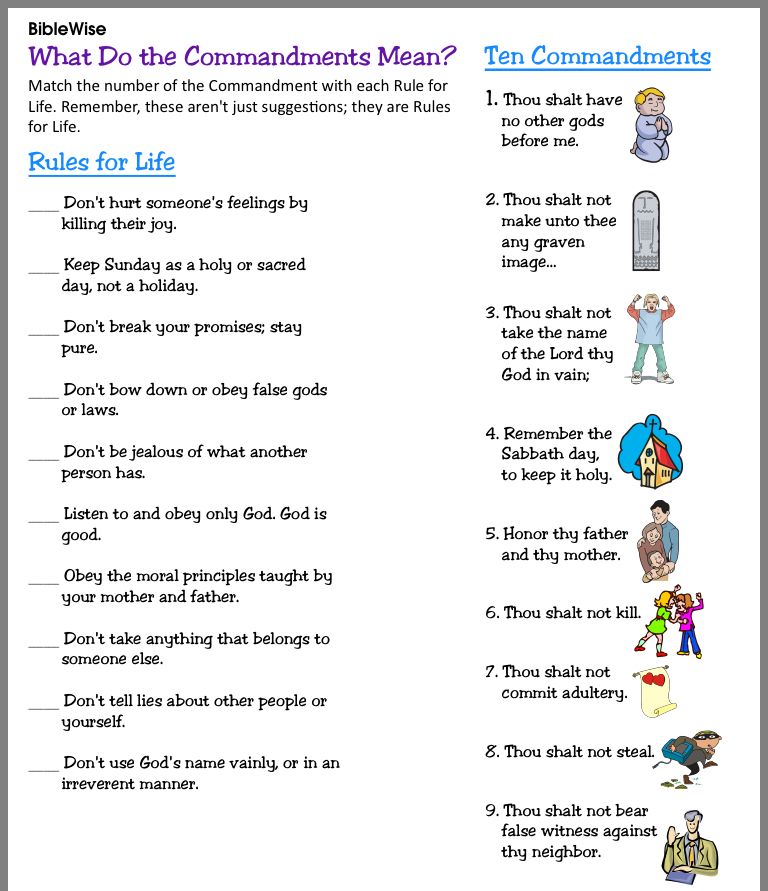
What does covet mean? What makes you want more? Do you look at others and wish you had their stuff? Open a magazine, or show some newspaper flyers, and discuss what companies are trying to sell. Have your students make a list of things they want. Ask them if they have ever given something away and felt really good. Explain the importance of counting one’s blessings and not worrying about what others have or wear.
Peggy Weber is a reporter and producer for Catholic Communications for the Diocese of Springfield, Mass.
This article originally appeared in RTJ’s creative catechist October 2013.
Image credit: Marius Pirvu, Shutterstock
10 COMMANDMENTS OF EDUCATION - school gymnasium 524 in the Moscow region
A little man came to a big and incomprehensible world for him. And it depends only on the parents that the little silly child becomes a Personality, a happy Person who goes his own way.
A certain sage said: "You may not give your children gold and silver or other wealth, but give them a good education and it will become their earthly staff."
This wise advice has not lost its relevance today. But in order to give an upbringing to a small person, it is necessary to know his basic laws or commandments. We hope that these commandments will be useful to young parents raising babies. But it would be useful to learn or repeat them to parents of older children.
Be a worthy example
In order for a child to grow up to be a kind, sympathetic and intelligent person, parents need to become like that themselves. The child tends to imitate. And his parents are an example in everything for him. So be a good example to your children.
Commandment of unconditional love
Unconditional love for a child is love for the existence of a child in the world. Do not try to forcefully change the child, do not impose your concepts and ideas on him.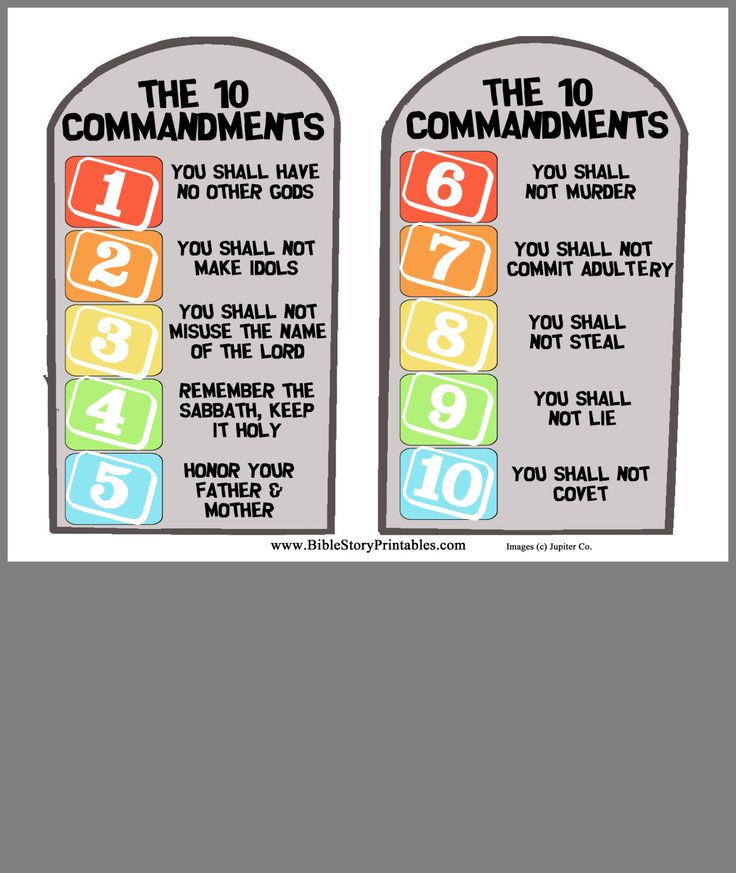 From the very first days of birth, your unconditional love and care is very important for a child. It depends on how a person will feel in the future: happy or flawed.
From the very first days of birth, your unconditional love and care is very important for a child. It depends on how a person will feel in the future: happy or flawed.
Respect the child
Even the smallest fool is already a Personality. Children look at the world openly. They love and feel him with all their hearts, trust him. The task of parents is to preserve in children joy, love for life, love for themselves. Respect your child and in old age you will receive a respectful attitude towards yourself from him.
Trust your heart
The wisdom of education is instilled in all of us from birth. She lives in our heart. And to comprehend it, you need only love. You, like no other, will be able to understand and feel all the needs of your baby if you listen to your heart, and not the advice of others.
Tune in to the good
A child under three has an unusually strong bond with his mother. He feels all her fears, worries and anxieties. Therefore, overcome them and believe in the well-being of your child. Expect only good things from him. This will help the baby grow up as an independent, inquisitive and proactive person.
Therefore, overcome them and believe in the well-being of your child. Expect only good things from him. This will help the baby grow up as an independent, inquisitive and proactive person.
Trust your child to teach responsibility
All children strive to be independent from an early age. Therefore, give the child such an opportunity, of course, within reasonable limits. If parental guardianship is too intrusive, there will be a protest in the form of stubbornness.
Parents should be like gardeners: protect the child, not force his nature and character.
Continually support your child
Let your child take an active part in family life. A baby under one year old should be picked up as often as possible. For him, constant contact with his mother is very important for further normal development. The baby, in order to become independent from his mother, needs to go through the stage of his absolute dependence on her.
Children of any age should always feel the support of their parents and know that they will always come to their aid.
Give basic education to a child under the age of three
Our ancestors said that a child should be taught while he is lying across the bench. In other words, it is necessary from a very early age to teach a child to think, to develop his curiosity, to educate him.
The child has the right to learn from his mistakes
Allow the child to make mistakes, provided that this does not pose a threat to his life and health. This is an invaluable experience for him, which is necessary in order to become responsible for his actions in the future. Only after experiencing a negative experience (a bad grade at school or a scratch from a cat) will the child trust the parent's warnings.
Help a child to find his Path
A person will be happy only if he follows His own Path.
The task of parents is to help find this Path without imposing anything or forcing them to live someone else's life. Develop individuality and difference in your child. Do not turn parenting into torture for a child. The choice should always be with the child. And parents can only offer him: the wisdom of his heart and the generosity of his soul, love, admiration and support, respect and recognition.
Do not turn parenting into torture for a child. The choice should always be with the child. And parents can only offer him: the wisdom of his heart and the generosity of his soul, love, admiration and support, respect and recognition.
This entry was posted in Uncategorized. Bookmark the permalink.
10 commandments for parents - Psychologos
31 Dec. 2009
The main conditions for raising children in the family
How should you raise your child? As a rule, parents are waiting for a specific answer to this question: to bring up strictly or condescendingly? to punish or not to punish? educate authoritatively or comradely? feeling or mind? These and other similar questions, of course, have the right to exist, but it is now becoming clear that these questions are not the main ones.
5Read more
Oct 01 2022
How to love children
A child can be compared to a mirror. He reflects love, but does not begin to love first.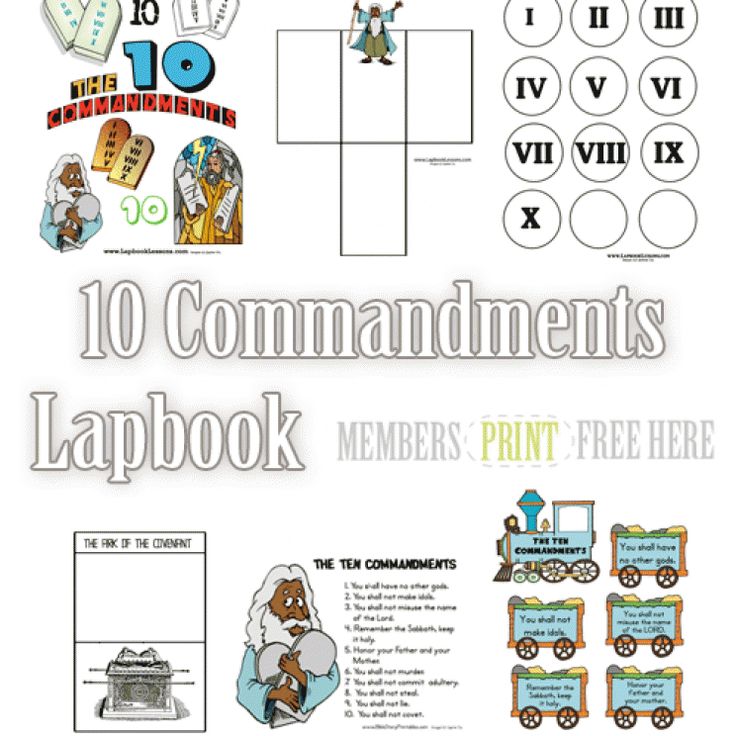 If children are given love, they return it. If nothing is given to them, they have nothing to give back. Unconditional love is reflected unconditionally, and conditional love returns depending on certain conditions. Many children these days do not feel that their parents truly love them. And besides, I met parents who really do not love their children. So it's not just an academic question to think about and shake your head, "How bad!" The situation is very worrying.
If children are given love, they return it. If nothing is given to them, they have nothing to give back. Unconditional love is reflected unconditionally, and conditional love returns depending on certain conditions. Many children these days do not feel that their parents truly love them. And besides, I met parents who really do not love their children. So it's not just an academic question to think about and shake your head, "How bad!" The situation is very worrying.
4Read more
Oct 01 2022
How to educate - with a stick or a carrot
According to one well-known American sociologist, the birth of newborns into the world is a systematically repeated invasion of barbarians. Newborns do not have morality, they cannot behave in accordance with social needs, they are not familiar with the system of moral and other norms of this society. All this is taught to the child in society and, above all, in the family. There are many forms of learning based on both conscious and subconscious perception, and among these various pedagogical techniques, the principle of reward and punishment, known from ancient times, which will be discussed in this article, naturally occupies the first place.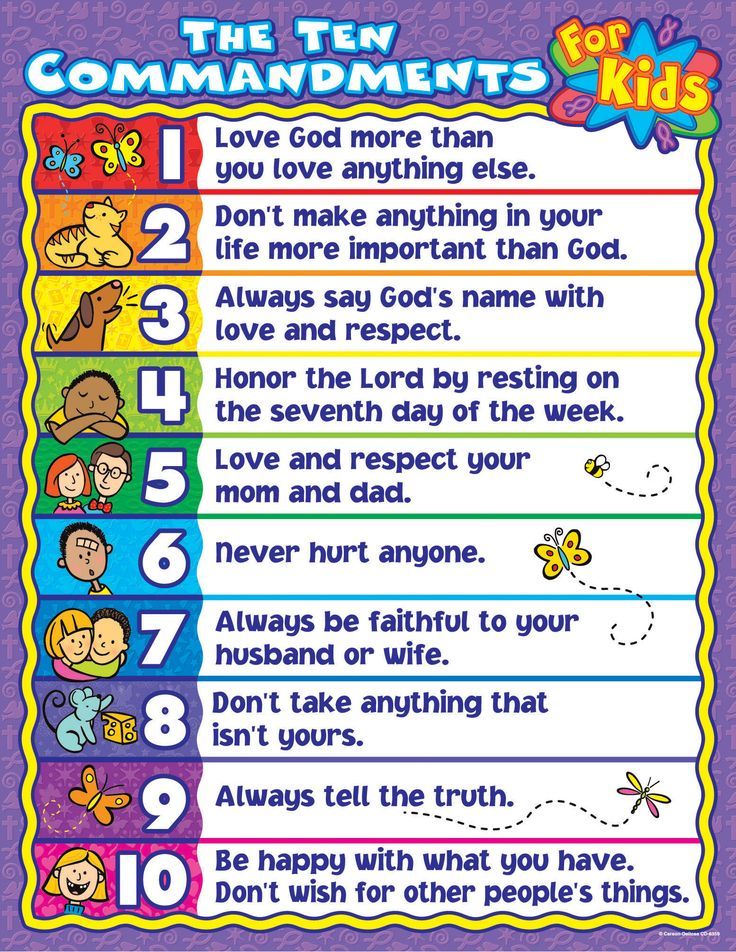
2Read more
Oct 01 2022
Wrong upbringing
Wrong upbringing mainly uses the following methods: assault (not to be confused with timely light slaps on the buttocks): cuffs, cold severity, hysterical swearing.
0Read more
Oct 01 2022
Proper upbringing of children
Proper upbringing of children is education built on the basis of rules and going in the right direction.
0Read more
Jan 01 2010
The Most Important Things Parents Can Teach Their Child
Concentrating too early on theoretical problems can hinder a child's normal development.
0Read more
Oct 01 2022
The magic word for parents is “Wait!”
When it came time for my little daughter to switch from pureed to solid food, she made the point very explicitly, spitting it in my face. By the end of the second day of the struggle, I was convinced that she would not eat solid food, and when she grew up, she would go to a home for the disabled.





